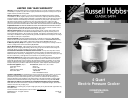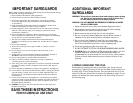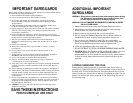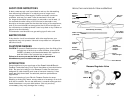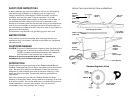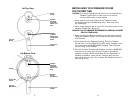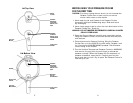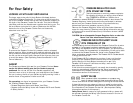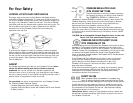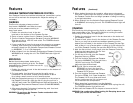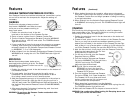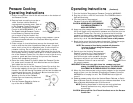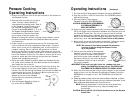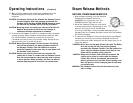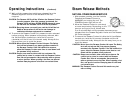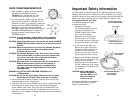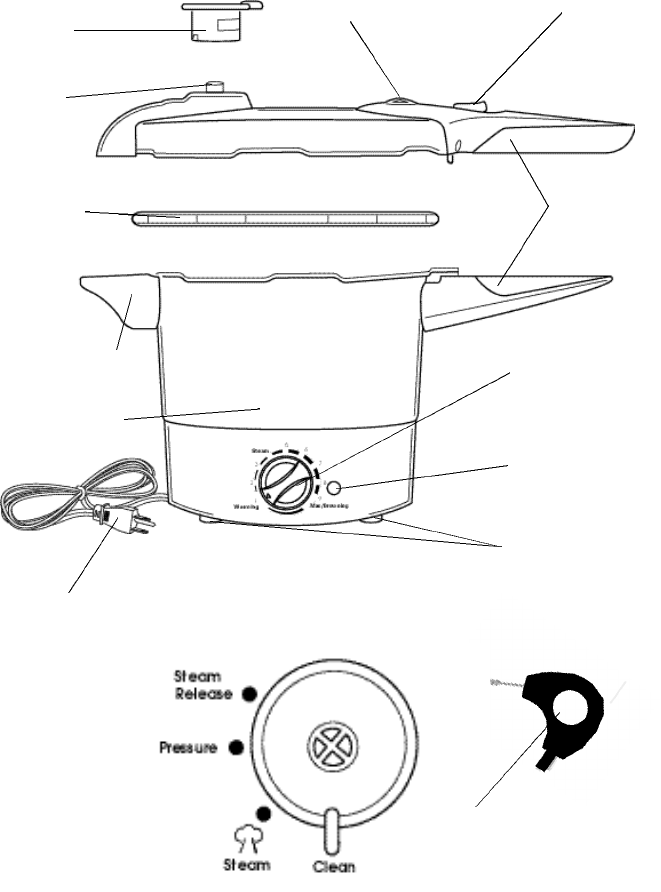
PRODUCT MAY VARY SLIGHTLY FROM ILLUSTRATIONS
Pressure
Regulator
Valve
(P/N 21936)
Variable
Temperature/
Pressure
Control
Power
Indicator Light
Cleaning Brush
(P/N 21100A)
Non-Skid Feet
Steam Vent
Tube
Pressure
Lift Pin
Lid Lock
Button
Lid Assembly (P/N 21937)
Cool Touch
Lid Handles
Cool Touch
Handle
Pressure
Cooker Pan
Power
Plug
Gasket
(P/N 21938)
4
Pressure Regulator Valve
SHORT CORD INSTRUCTIONS
A short power supply cord is provided to reduce the risk resulting
from becoming entangled in or tripping over a longer cord.
Longer detachable power-supply cords or extension cords are
available and may be used if care is exercised in their use.
If a longer detachable power-supply or extension cord is used, (1)
the marked electrical rating of the cord set or extension cord
should be at least as great as the electrical rating of the appliance,
and (2) the cord should be arranged so that it will not drape over
the countertop or tabletop where it can be pulled on by children or
tripped over accidentally.
The extension cord should be a grounding-type 3-wire cord.
ELECTRIC POWER
If the electric circuit is overloaded with other appliances, your
appliance may not operate. It should be operated on a separate
electrical circuit.
PLASTICIZER WARNING
CAUTION: To prevent Plasticizers from migrating from the finish of the
counter top or table top or other furniture, place NON-
PLASTIC coasters or placemats between the appliance
and the finish of the counter top or table top.
Failure to do so may cause the finish to darken, permanent
blemishes may occur or stains can appear.
INTRODUCTION
Congratulations on your purchase of the Russell Hobbs® Electric
Pressure Cooker featuring Cool Touch Handles and non-stick interior
finish. The special coating on the Pressure Cooker Pan has been
designed to add durability and ease of use and cleaning. It has
been specially formulated for selected premium performance
appliances.
Care and cleaning of your Electric Pressure Cooker is a snap.
Washing or rinsing with warm, soapy water and a sponge or a cloth
is all that is needed. Do not use steel wool, coarse scouring pads or
harsh abrasives on any non-stick surface. Not only are they
unnecessary, they may damage the coating.
3



